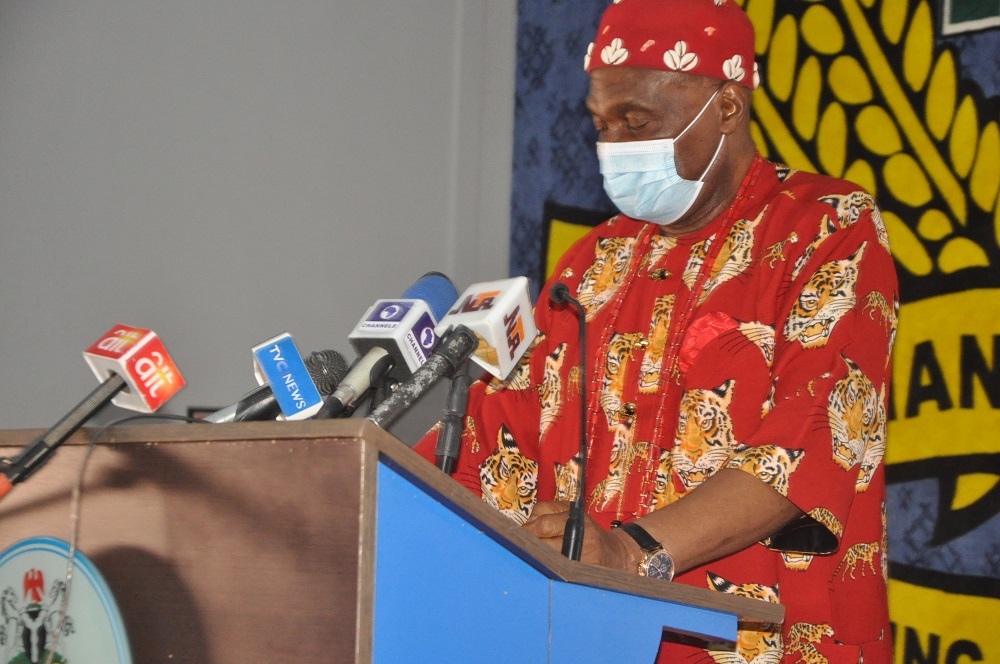John Nwodo is the immediate past president-general of the pan-Igbo sociocultural group Ohaneze Nd’Igbo.
On Thursday, he was one of three speakers at the 18th Daily Trust Dialogue, which this year looks at the restructuring of Nigeria, an issue that has been controversial in national politics since the country’s return to democracy nearly 20 years ago.
Here he answers the main questions posed by the dialogue about Nigeria’s restructuring.
Why should we restructure?
We should restructure because the constitutional history of Nigeria shows that the only constitutions of the Federal Republic of Nigeria made by all the ethnic groups in Nigeria, were the 1960 and 1963 Constitutions.
The 1999 Constitution overthrew the sovereignty of the regions over their national resources and domestic security unleashing in the process an unprecedented fall of education standards, domestic security, and economic wellbeing.
When do we restructure?
We must do all we can to restructure before the next election in 2023 because the level of dissatisfaction in the country as evidenced by the last ENDSARS protest gives one the impression that any delay may lead to a mass boycott or disruption of the next elections to the point that we may have a more serious constitutional crisis of a nation without a government.
How do we restructure?
To restructure Nigeria, we need a constitutional conference of all the ethnic groups in Nigeria. To use the current National Assembly as the forum for constitutional amendments grants a tacit recognition of the overthrow of our democratic norms by the enthronement of a military constitution by which they are composed.
The outcome of the constitutional conference must be subjected to a public plebiscite in which all adult Nigerians should have the right to vote. This process should be open, it should be supervised by international agencies to validate its transparency and thereafter usher new elections based on its provisions and structure.
This process in my view will ultimately refocus our country breed a democratic culture that emphasizes more on selfless service rather than individual enrichment, promote genuine unity instead of ethnic bigotry and challenge our capacity to exploit our abundant potentialities to make life more abundant for our people.

 Join Daily Trust WhatsApp Community For Quick Access To News and Happenings Around You.
Join Daily Trust WhatsApp Community For Quick Access To News and Happenings Around You.


